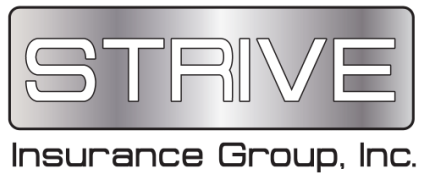|
Business Insurance Trends The business insurance world is changing at a fast pace. Technology is continually evolving and businesses must change or die. New technology also brings change in claims and litigation. Often lawsuits filed today are indicators of business liability claims tomorrow. Business Insurance Business or commercial insurance coverage is available for almost every conceivable risk your business might face. The cost and amount of coverage of policies vary among insurers. Also the type of business you are in also impacts cost and coverage. You should discuss your specific business risks and the types of insurance available for your business with us. Future Business Insurance Risks Intellectual Property This is one of the fastest growing areas of litigation. The average defense cost in 2013 was over $500,000. With more information being disrupted over the internet, claims are sure to increase. Intellectual property insurance coverage protects companies for copyright, trademark or patent infringement, and claims arising out of the company's operation. Products Liability Insurance Products liability insurance covers a wide range of potential claims related to the sale and distribution of products. These include any injuries or losses due to design defects, manufacturing defects, inadequate instructions or warnings, improper packaging or labeling, breach of warranty, and other similar issues. In addition to covering the associated legal costs, it can also provide coverage for damages awarded by a court in such cases. This type of insurance is critical for businesses that produce, distribute, or sell products as it helps protect them from financial losses if they are held liable for an injury caused by their product. Healthcare Professional Liability As we move well into healthcare reform, we are seeing increased litigation focused on medical providers of all kinds. In 2012, litigation against OB/GYN doctors accounted for over $3.5 billion in claims. Many states have enhanced medical malpractice laws designed to speed up and compensate injured patients. Cyber attacks Recent news that Russian cyber thieves stole billions of passwords should create heightened awareness about the risks and need for cyber insurance. The problem, Munich Re explains, stems from the fact that “most traditional property and liability policies provide no cover for cyber risks” although there still may be a duty to defend until such time as coverage is determined. Social Media Social media is becoming popular with many businesses, and this increases the liability risks. The combination of personal use and business use combined with privacy laws increases the risk to business of being sued by employees and other third parties. There is definite increased risk of defamation, libel and slander for firms who don’t outsource the service. Directors & Officers Liability Most business owners don’t believe they can or will be sued despite statistics that show otherwise. The latest number by Chubb Insurance Company shows that about 20% of firms have been sued for directors and officers negligence. Claims can be made by shareholders, regulators, family members, customers, vendors and competitors. The day-to-day operations and challenges of running a business can often overshadow the importance of reviewing your insurance coverage. Updating your insurance may not be at the top of your priority list, what with work, home, and personal obligations. Have you ever wondered when you should update your insurance policy? We recommend your take the time to review your business insurance program before each renewal.
The length of time it takes to renew your policy is determined by the size of your company, the complexity of your risk, and the insurance carriers you use. However, starting conversations two to four months ahead of time has a significant advantage. We have discovered that it allows you to communicate with your insurance broker about various difficulties and ideas. You can talk about potential company developments as well as the various insurance options. A good market strategy can be condensed to five simple criteria regardless of an organization's size, complexity, or risk profile.
To begin with, how responsive is your insurance agent? Is it common for you to be left hanging or suffering in the dark for weeks while waiting for a response to your insurance details? Of course, top-tier brokers are also quite busy. A little common sense goes a long way. People who want your business, on the other hand, are more likely to work hard for it. Consider the following items when selecting your agent
Some agent like to start 120 out from the renewal date, and other say 90 days is ok. We think the more time you have, the better. This gives you plenty of time to plan your strategy and goals, gather data, create attractive underwriting submissions, engage underwriters to consider your options, and get post-binding papers like ID cards, certificates of insurance, and invoices. The idea is never to give an insurer a reason to deny participation because "there isn't enough time. Review Your Risks In Relations To Your Coverage The process of risk and coverage review can be important to ensure your proposed coverage meets your goals. If you have an uncured loss due to a lack of understanding of your risk is never acceptable. This gives you and your agent an opportunity to thoroughly review your risks and design a program to meet your needs. Recognize That Low Price May Not Be The Best Option Often businesses will look to the lowest cost as the main factor in considering which program to select. This may not be in your best interest. Low-cost insurance can mean that there are coverages missing, restrictive terms, or exclusion you may not want to be included in the quote. There are cost-saving options when purchasing or renewing company insurance coverage to help you save a large amount of money. If you can persuade your insurance that your risk exposure is modest, for example, your premium can be lowered. Be Prepared To Negotiate While a small business doesn't have the same bargaining power as a firm that pays a six-figure premium, there are a few things you can ask for, including:
Yes, the renewal procedure can be time-consuming and complicated, with many loose ends. That does not have to be the case. Not if you follow the correct procedures and have a well-defined strategy. A qualified insurance broker specializing in commercial insurance plans may make things a lot easier and more cost-effective. Commercial business insurance is an important aspect of any business that cannot be ignored, especially if the business premises are leased or rented and even otherwise. Whatever your commercial insurance needs, we can design a protection program that’s right for you. There are more remote workers in American today than at any time in our recent history. Many employers are embracing this trend, but there are new risks to consider. As a result of this distant work environment, a crucial problem arises in new security threats. In our digital age, businesses have had to improve their cybersecurity, yet cybersecurity dangers have increased significantly due to remote labor. Employees who work from home are at a significantly higher risk than those who work in offices.
Ransomware attacks are also a big concern for more than two-thirds (69%) of IT executives, who anticipate that the hybrid workplace will be a target for ransomware. Targeted organizations faced a threat to their business continuity as a result of these attacks. Sharing a computer and using it for personal purposes are two different things. It may seem self-evident, but sharing a business computer with family or roommates can be a security concern. This should be avoided at all costs, especially if your work result contains sensitive customer information. Cyber Tips For Remote Workers
For remote employees, cybersecurity necessitates ongoing monitoring. Give us a call if you're concerned about your present remote security practices. We'll examine and put safeguards in place that will allow your remote workers to work securely and productively. Cyber Liability Risk
Every business is at risk for a cyber breach. Even the White House has experienced a cyber breach. Cyber breaches are now a fact of life, and every state now has mandatory requirements for data breach notification. Statistics show 41% of all cyber incidents affect businesses with fewer than 100 employees. If you store data, including private information on computers, use e-mail, generate revenue online, or use your computer to control production, manufacturing, or inventory, your company is at risk! Best Practices For Cyber Risk While cyber liability insurance should be considered by every business, in addition, we also recommend specific procedures and defensive programs to limit or reduce your risk.
Cyber Liability Insurance Most business large and small now purchase cyber liability insurance which is designed to cover the costs of investigations, notification, and credit monitoring for affected individuals, regulatory compliance, defending lawsuits, and payment of any resulting judgments or settlements. The level of coverage your business needs is based on your individual operations and can vary depending on your range of exposure. Part of your business planning for 2021 should include an annual business insurance review. Your business changes, and so do your exposures. After you review some of these items, call our office, and we will be happy to discuss these and more with you.
It’s never been more important to partner with a broker that specializes in your business, understanding your unique exposures, with risk services capabilities and strong carrier relationships. Why Complete a Business Insurance Review?
COVID-19 Planning
Items to Consider When Completing a Business Insurance Review
Have you added any new partners? There might be a need for life insurance. As a business owner, you can ensure that your company is protected by keeping your general liability insurance, workers’ compensation insurance, and commercial auto policies updated to reflect changes in your business. According to insurance experts, here are the top five business risks. The Allianz Risk Barometer surveyed more than 500 managers and corporate insurance experts in 47 countries, to identify the primary challenges facing businesses this year.1
While these are responses from large corporations, we take away many applications for medium and small businesses. Here are some of the risk issues for 2020.
All of us value the long term relationship with our clients, and are proud to give families, individuals and businesses the personal attention required when it matters most. When claims arise, we realize that it can be very stressful and will do everything possible to assure timely and complete recovery. Texas Business Insurance Renewal
Your business insurance is an important part of your risk management program. It is important to have the right insurance coverage, competitive pricing and the right insurer. We have found at least five factors that are important to manage when renewing your business insurance program. Business Insurance A business insurance program can include commercial property, auto, commercial liability, employment liability, workers’ compensation, professional liability and excess liability. Insurance Renewal Tips Provide complete information about your operation. Paint a picture that describes what you do and how well you do it. You have to sell the underwriter on what is different about your operation and how the insurance company needs to insure your risk, because you are above average. Use an independent agent. We are best equipped to provide you with the best combination of coverage, price and service. Combine your property, auto and liability with one insurer if possible. You will receive package discounts. Have a well-managed safety program. Putting a little effort into your business insurance renewal can reap rewards in the form of better coverage and lower premiums. As an Independent Insurance Agency we represent many insurance companies to fit your businesses dynamic needs. Whether you're a new business or a small business, we can help. Being an Independent Agent means we are not only your agent, but we are your insurance broker as well. We understand every business and industry is unique, so we will work with you to find the best business insurance coverage at the lowest rate. Contact us today for a free quote. Tis The Season… For Problems
As we approach the holiday season, we thought it might be good to provide you with a few insurance tips on how to protect yourself and your family during this season. The holiday season usually sees an increase in homeowners and other personal types of accidents and claims. Here are a few examples. Common Insurance Claims During The Holiday Season
Identity Theft Increases during November and December With more online shopping identity thieves target online shoppers. Criminals access public Wi-Fi systems to hack into your computer and smartphone. Today, some homeowner insurance policies will either include or offer as an add-on, some type if identity theft coverage but in most cases, the coverage is limited. A stand-alone identity theft policy that is more comprehensive will typically contain the following benefits:
A standard homeowner’s insurance policy can offer protection from many of the trips, spills, and holiday mishaps. If your home insurance is written properly it can offer insurance coverage for;
Renters or Condo Insurance Renters insurance can also provide coverage during the holidays.
Auto insurance can provide coverage for you and your passengers while driving during the holiday season. There is a variety of different auto coverage options to suit different people, family situations, financial statuses and more. While state law requires certain coverages and minimum limits, most drivers should carry much higher limits to protect themselves and family should an accident take place. The primary coverages included the following: Collision Coverage – Covers the costs of repairs or replacement of a vehicle in the event of an accident. Comprehensive Coverage – Pays for the costs and damages associated with events such as engine fires, hail damage, hitting a deer and other damages not caused by collision. Bodily Injury Coverage – Provides financial compensation for injuries or death due to an auto accident, within the policy’s coverage limits. Property Damage – Reimburses for damage to property, such as another vehicle, a fence, a building, and other types of features. Let us help you by providing a free, no obligation, auto insurance quote, including various coverage options to choose from. We’ll help you identify the right insurance policy, and the best insurance company, to financially protect your car, truck, and other passenger vehicles. Call or fill out our online insurance quote request today. Strive Insurance Group, Inc. is a full-service independent insurance agency that has been serving the insurance needs of the Dallas area since 1984 (formerly Gordon Lund Insurance). Don't worry, nothing has changed, but our name. In addition to having a presence in the Dallas and North Texas area, we have also expanded to Austin and Central Texas with agent representation and the same professional service. We represent, and have established a strategic alliance, with only the highest quality insurance carriers. In doing so, we can provide you with the service and protection to meet your dynamic needs. As your needs change, we can review and collaborate to decide which insurance company or companies are best suited to your situation. 11/20/2019 Criminals Are Holiday Shopping Too! Personal Insurance and Safety Update Halloween is over and that means we are in the middle of the holiday season. During the next 45 days, we will all be busy shopping, eating out, and traveling. Thieves know that the police are overloaded during the holiday season, and they take full advantage it. Burglars know that there are many expensive items in homes and cars during the holidays. Your home or renter’s insurance will provide coverage for theft or loss if you have the coverage. Now would be a good time to call us for a free personal insurance review. Whether you are holiday shopping at the mall, online, or a little of both, keeping yourself and your personal information safe is important. Here are a few holiday shopping safety tips: Holiday Shopping Safety
We work to ensure that your personal insurance provides the protection you deserve and need. We understand you may need different coverage like a personal umbrella, RV insurance, valuable articles coverage, earthquake, or flood coverage. Over the years, we have found that homeowners who adhere to the following strategies have a better chance of obtaining the best possible combination of coverage, price, and service. Our trusted insurance professionals are here to help you with every step of the insurance process and can design a personal or commercial insurance policy to fit your needs. One of the insurance professionals will work closely with you to ensure that you receive individualized attention you deserve. Strive Insurance Group, Inc. is a full-service independent insurance agency that has been serving the insurance needs of the Dallas area since 1984 (formerly Gordon Lund Insurance). Don't worry, nothing has changed, but our name. In addition to having a presence in the Dallas and North Texas area, we have also expanded to Austin and Central Texas with agent representation and the same professional service. We represent, and have established a strategic alliance, with only the highest quality insurance carriers. In doing so, we can provide you with the service and protection to meet your dynamic needs. As your needs change, we can review and collaborate to decide which insurance company or companies are best suited to your situation. Many think that operating a small business has little or no risk. The fact is, operating a small business has just about the same risks as any other business. Employees can still sue you, you can cause injuries to your customers, and your building can burn just like a big business. General liability risk is very real for small businesses and it is important to have a business insurance program that addresses these issues.
To protect a small business from potential lawsuits, liability insurance is necessary. Policies vary greatly, and they cover different classifications of risks for varying costs. Commercial General Liability Insurance covers claims from accidents, injuries, or negligence when the business is at fault. Small businesses may face a wide array of damage charges. Personal injuries, property damage, libel, and slander are just a few examples. Product Liability Insurance covers legal fees for litigation involving a faulty product. It also covers any personal or property damage charges caused by the defective product. Employment Liability Insurance provides protection for an employer against claims made by employees, former employees, or potential employees. It can cover discrimination (age, sex, race, disability, etc.), wrongful termination of employment, sexual harassment, and other employment-related allegations. Professional Liability Insurance pays for damages caused by services. It is also called errors and omissions coverage. This is for companies that market a service instead of a product. For example, professionals in medical clinics must have medical malpractice coverage. Cyber Liability Insurance covers the risk posed by conducting business over the Internet, over other networks, or using electronic storage technology. It covers third party losses from hackers, theft, and loss of information including sensitive client or individual personal information. There are other types of insurance designed for specialty businesses. For example, there are special policies for companies involved only in internet sales. The nature of the business determines what type of coverage is necessary. Our insurance agency's reputation for representing the best insurance companies, providing excellent customer service and competitive pricing to our clients has been earned and proven for over 25 years. We take great pride in finding you the best coverage and backing it up with prompt personal service. We have been serving the Dallas/Richardson, TX area for over 25 years and have recently expanded to the Austin, Cedar Park, and Round Rock area. We understand every business and industry is unique, so we will work with you to find the best business insurance coverage at the lowest rate. Contact us today for a free quote. |
Archives
June 2024
Categories
All
|











 RSS Feed
RSS Feed
3/15/2023
0 Comments